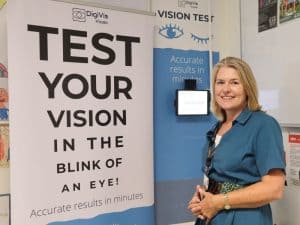Working Life: Philip Sarbutt
pharmafile | October 28, 2008 | Feature | Research and Development, Sales and Marketing | UK, Wyeth, Wyeth Pharmaceuticals, outsourcing
How did you find your way into your role?
Somewhat by chance. After graduating from university in Japan, I initially applied for a role with Procter & Gamble Japan's sales force. However, after the interviewer enquired how a 6'7" 'gaijin' would deal with a Japanese WWII veteran grocery store owner, I thought I would probably fit better on the other side of the negotiating table. I was offered a position in P&G's purchasing department and, despite changes in location (Japan to Australia to UK) and industry (FMCG to healthcare/medical devices to pharmaceuticals), I have stayed within the field of strategic sourcing.
How is your field changing?
The forces playing on the pharmaceutical industry are well known – patent expirations and generic competition, limited new product pipelines and increasingly stringent regulatory and quality requirements. In this context there is immense pressure to maintain profitability through greater focus on the cost side of the P&L. At the same time, cost cutting must be done in a way that does not impair the core competencies critical to current and future revenues.
There have been a myriad of approaches to this common challenge. Almost every element of activity has been subject to scrutiny and re-engineering. The response has varied markedly from company to company. While many companies are choosing to outsource, others are conversely bringing activities back in-house – all ostensibly to achieve the same cost-effectiveness objective. This reinforces the need for a clear focus and fit of the sourcing strategy to the company's current capabilities and the future business strategy.
What is most enjoyable about your role?
I really enjoy the daily stimulation of working with a wide range of talented colleagues and supplier partners to come up with strategies and solutions to sourcing and supply issues.
And least enjoyable?
Sometimes the outcome of the sourcing strategies has a significant impact on existing suppliers – potentially including job losses. I am always mindful of the short-term dislocation these sourcing decisions may bring.
What are the most common misconceptions about your field and the people in it?
I think the most common misconception is that purchasing/sourcing is myopically focused on cutting costs, sometimes in relatively peripheral areas of expenditure. One colleague referred to my field, only half-jokingly, as 'strategic shopping'.
Cost reduction is certainly a major area of focus, but the job is equally about creating value improvements through market research, benchmarking and best-practice assessments, opportunity analysis, and through building and maintaining effective relationships with the supplier base.
Who in your field has inspired you most?
My first boss at P&G Japan was especially inspiring. For him strategic sourcing was a mission and he dedicated several years overseas to organising, developing and leading multi-national strategic sourcing teams. He genuinely believed in achieving results by empowering his staff and his challenging yet supportive style engendered tremendous energy in his teams. This stimulated his teams, including myself, to develop as people as well as sourcing professionals.
And outside of work?
My wife has been a source of great inspiration. When she was diagnosed with MS ten years ago it presented a huge challenge to her life aspirations and immediately quashed our move to Singapore where she was about to take up a position teaching at the National University.
While it has not been easy, she has indefatigably adapted to the constraints of her medical condition and found a way to remain self-sufficient. Her example has inspired me not to give up even in the most difficult and unpredictable circumstances, and reminded me of the power of medicines to provide hope and improve lives that would otherwise be blighted by such chronic conditions.
What is the secret to a happy working life?
Passion. I think you need to find ways to love what you do at work and find significance in your work that transcends the transactional, more mundane aspects.
If you had advice for anyone starting out in your field now, what would it be?
Probably to seize chances to broaden one's experiences, especially during one's early years in the job. I think breadth of experience provides diversity of perspective, as well as building a wider network of relationships. It is really satisfying when disparate threads of experience can eventually be tied together for a new approach to a role or challenge.
How do you relax and forget about work?
Exercise – I enjoy playing golf and tennis, walking and swimming. Also by reading – especially biographies.
In an alternate life, what would you be doing?
Teaching. I really enjoy helping others to gain new knowledge and seeing them apply it to new situations or tasks.
Biography: Philip Sarbutt is currently associate director of strategic sourcing at Wyeth Pharmaceuticals.
His seven years of strategic sourcing at Wyeth comprises three years in Europe and four years in the Asia-Pacific office in Sydney Australia. Prior to working at Wyeth, Philip worked at Baxter Healthcare and Procter & Gamble, also in strategic sourcing/procurement roles.
Philip graduated with an economics degree from Kobe University (Japan) in 1995 and completed an MBA at the Australian Graduate School of Management in 2003.
If you would like to contribute to a future Working Life, please contact Martin Maynard via e-mail at: mmaynard@wiley.com
Related Content

Addenbrooke’s hospital offers first self-service digital eye test
Addenbrooke’s Hospital, Cambridge, has become the first in the UK to deploy a digital self-testing …

Digital Control Room, a major pharma provider, wins King’s Award for Enterprise
Buckingham Palace has announced that Digital Control Room, a software platform that monitors companies’ online …

Deadly cancers are being financially left behind, new research claims
New research has revealed that some of the UK’s most deadly and prevalent cancers receive …






